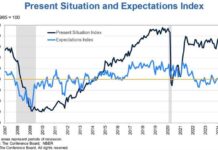Climate change is a pressing issue that continues to have far-reaching impacts on our environment, economy, and society as a whole. As we strive to understand the true cost of climate change, it is crucial to acknowledge the limitations and inaccuracies in current estimates. The complexities of this issue have made it challenging to quantify the full extent of the damage caused by climate change, leading to considerable uncertainty in predicting future costs.
The Evolution of Climate Change Cost Estimates
In the early days of climate change research, economists like William Nordhaus began grappling with the daunting task of estimating the costs associated with global warming. Nordhaus, who later received a Nobel Prize in economics for his work in this field, initially represented the “damage function” as a wiggly line, symbolizing the uncertainty and unpredictability of climate change impacts. The lack of concrete data and the unprecedented nature of the problem led Nordhaus to describe climate change as “terra incognita,” an unknown land fraught with challenges.
As Nordhaus delved deeper into his research, he attempted to provide a rough estimate of the economic losses that would result from a 3°C rise in global temperatures. His calculation suggested that 1-2% of global GDP could be lost due to climate change, but he himself admitted that this was no more than an “informed hunch.” The inherent complexities and uncertainties surrounding climate change make it difficult to accurately quantify its costs, highlighting the need for more comprehensive and nuanced approaches to estimating the true impact of climate change on our economy and society.
The Challenges of Estimating Climate Change Costs
One of the primary challenges in estimating the true cost of climate change lies in the interconnectedness of various factors that contribute to its impacts. Climate change affects not only the environment but also human health, agriculture, infrastructure, and many other sectors of society. The cascading effects of climate change make it challenging to isolate and quantify its specific costs, leading to inaccuracies in current estimates.
Furthermore, the long-term nature of climate change poses additional challenges for economists and researchers attempting to forecast its costs. The impacts of climate change unfold gradually over time, making it difficult to predict the full extent of its consequences. This temporal dimension adds another layer of complexity to cost estimation efforts, as future scenarios and projections become increasingly uncertain.
Another major challenge in estimating climate change costs is the inherent uncertainty surrounding the effectiveness of mitigation and adaptation measures. As countries and communities around the world take steps to reduce greenhouse gas emissions and build resilience to climate impacts, the effectiveness of these efforts remains uncertain. The success of climate policies and initiatives will ultimately determine the magnitude of future costs associated with climate change, highlighting the need for ongoing evaluation and adjustment of strategies to address this global challenge.
Towards a More Accurate Assessment of Climate Change Costs
Despite the challenges and limitations in current estimates, there are steps that can be taken to improve the accuracy of assessing the true cost of climate change. One key aspect is the integration of multidisciplinary perspectives and expertise in climate change research. By bringing together experts from various fields, including economics, environmental science, public health, and social sciences, a more comprehensive understanding of the costs of climate change can be achieved.
Additionally, the development of sophisticated modeling techniques and scenario analyses can help generate more robust and nuanced estimates of climate change costs. These tools can simulate different future scenarios based on varying assumptions and parameters, allowing researchers to explore a wide range of potential outcomes and uncertainties. By incorporating these advanced modeling approaches into cost estimation efforts, researchers can enhance the accuracy and reliability of their findings.
Furthermore, increased collaboration and data sharing among countries and organizations can facilitate more comprehensive and globally representative assessments of climate change costs. Climate change is a global issue that requires coordinated efforts and information exchange to fully understand its impacts and costs. By working together, the international community can develop more accurate and insightful assessments of the true cost of climate change, informing policy decisions and resource allocation strategies.
In conclusion, estimating the true cost of climate change is a complex and multifaceted challenge that requires innovative approaches and collaboration across disciplines and borders. While current estimates may be limited in their accuracy and scope, ongoing research and advancements in modeling techniques offer promising opportunities to improve our understanding of the economic, social, and environmental costs of climate change. By addressing the challenges and uncertainties inherent in estimating climate change costs, we can better prepare for the future impacts of this global crisis and take proactive measures to mitigate its effects.

















